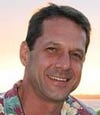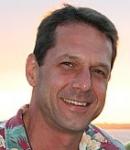Notes from Expo West
Our California roadtrip to Natural Products Expo West is over. We spent three full days in the aisles of the Anaheim Convention Center, visiting exhibitors, talking with retailers and looking for the Next Big Thing. Among the top performers at this ...
March 17, 2008
Our California roadtrip to Natural Products Expo West is over. We spent three full days in the aisles of the Anaheim Convention Center, visiting exhibitors, talking with retailers and looking for the Next Big Thing.
Among the top performers at this year’s show were products that were enhanced, infused or improved with the addition of ingredients like antioxidants, or omega-3 fatty acids. There was a lot of tea, chocolate and coffee with fair trade certification. Kid cuisine continued to show improvement with a new round of healthful snacks and meals. And there was a generous splash of value-added waters. Many touted higher pH’s. The alkaline formulations of 8.0 or more were promoted as more nourishing for cells.
If there’s a common thread that ties these disparate categories together, it’s that they represent the hottest movers in the supermarket today. What we saw this past week wasn’t groundbreaking, but retailers can take heart that the products they currently stock promise to get better, and there are still plenty of consumers eager to purchase these items.
There was not only plenty to see, but plenty to listen to. Author Michael Pollan delivered the keynote address at this year's show, talking about "our national eating disorder."
"Food-related, chronic diseases are what kill most of us in this country," he said, noting we are becoming a Lipitor nation, a place where our Western diet causes Western diseases like diabetes.
Pollan's hypothesis behind this phenomenon clearly resonated with attendees. America's ongoing obsession with individual nutrients like fat and carbohydrates reduces the significance of whole foods, and the complex interactions between nutrients as they are consumed and metabolized by the body. The country believes in this approach, which he calls nutritionism.
The problem is we still know so little about the science of good eating. There has yet to emerge a definitive best practice to this art. And so, it's better to keep things simple. Pollan put it this way: "Nutrition is like surgery in the 16th century. It has a lot of promise and is interesting to watch, but I wouldn't get on the table just yet."
About the Author
You May Also Like






